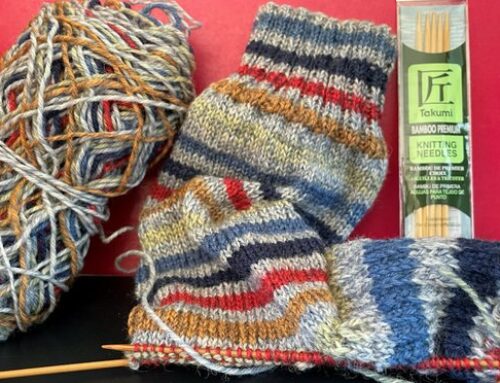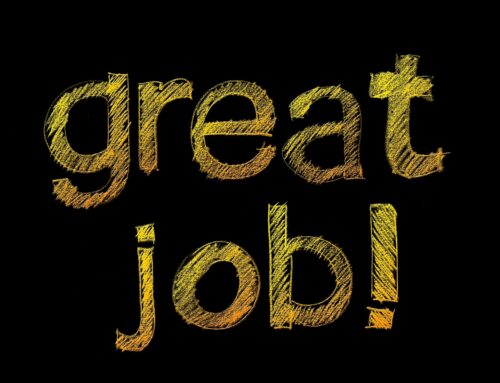I reconnected with an early mentor recently when an old piece of business brought us back together again. At the time we worked together, I appreciated his guidance—he showed me how to improve my writing, cross-examine an expert witness, pick juries and so much more. In hindsight, my gratitude has deepened. Like an invisible hand, he continued to guide me through situations that occurred long after we ceased working together. With great mentors, you can access their advice in many instances without even asking because their philosophies and logic are so deeply embedded.
The night before our first jury trial together, I asked him if he had any advice on what I should wear and he said “your wedding ring.” I laughed, thinking it was a joke. Although he deadpanned it, it was not a joke. The point, he said, is to give the jury as little to wonder about you as possible and to appear settled, stable and reliable. He wore his wedding ring too. These are the kinds of lessons we tend not to learn in school, but are important to success.
Rings made me think of shoes, another seemingly innocuous detail that cropped up recently when I asked James Rohn, chairman of Conrad O’Brien, if he could spare 15 minutes to speak with a client of mine in advance of an interview he was preparing for that was in Rohn’s wheel house. Here’s what distinguishes a true professional from the rest of the pack. Rohn said, why don’t you invite him to come see me at my office? I’ll pull in another colleague and we’ll put him through his paces.” His parting words of wisdom to my client were: “Wear a dark suit, a white shirt, a blue tie and black shoes.” The reason was similar to the wedding ring. If you stick to the basics, there is nothing to divert attention from the main attraction—you.
Speaking of attire, at last year’s Women’s Entrepreneurship Day event, Francine Friedman Griesing, managing member of Griesing Law, was on a panel talking about starting her own firm, her journey as an entrepreneur and her role models and mentors. Among many wonderful nuggets, one thing she said remained top of mind for me: “The way you present yourself, the way you dress, if you feel comfortable in your look it helps build confidence. It makes you more confident to face the world.”
As a coach who helps professionals perform better, I notice that many clients give short shrift to dressing for the role they have or desire. Everyone understands substantive preparation, but often when I ask “what are you planning to wear?” I get a vague shrug as if it is the least important thing. In my view, clothes and accessories are important for many reasons including the way they make you feel and clothes are an essential aspect of preparation. Before Griesing, I never heard an attorney speak to this in a professional setting. It was a breath of fresh air. Because of her insightful suggestions on the panel, I interviewed her about being a mentee and how to navigate the relationship.
Griesing has significant experience mentoring others. Before launching her own firm, she was head of litigation for Philadelphia and oversaw a large contingent of lawyers and support staff. Through mentoring, she developed terrific friends, resources and long-lasting relationships. She has sent people to be mentored by those she mentored, creating a cycle of support and enriching all sides of the endeavor.
At the outset of our conversation, she mentioned that, oddly, she had more mentoring as a senior lawyer than as a young one and it often comes from people who are less experienced—her daughter, people who run her firm and colleagues. Mentors do not always have to be our seniors. Sometimes younger or less experienced people can help us navigate areas of unfamiliarity such as technology and social media.
I asked Griesing what the key differences are between a boss and a mentor and she explained it this way: “A supervising attorney can be helpful in developing skills—how to take depositions, brief writing, etc. A mentor is someone who goes further than the assignment, how to navigate politics, how to get choice assignments, how to handle performance reviews and respond to client emails. A sponsor is a mentor on steroids—someone who will use political capital to help you, will go to the person giving out assignments personally, and will endorse you.”
Mentors and sponsors are also more likely than bosses to give guidance on the nonsubstantive aspects of your practice such as relational skills, networking, relationship-building and what to wear.
Many young lawyers do not have access to mentors within their organizations and Griesing recommends developing mentor relationships on the outside. She suggests joining bar associations and volunteering for a committee as a great way to meet peers. Some bar associations also have mentorship programs.
Griesing said, as an example, “I’m a commercial litigator in federal court so I might consider joining the federal court committee of the bar association.”
Griesing also recommended getting involved in other professional organizations. She likes affinity groups and recommended Women Owned Law for the support and mentoring opportunities available there for female entrepreneurs in the legal field and related businesses. Griesing also mentioned professional women’s organizations, ethnically based organizations such as the Brehon Law Society (which “fosters the profession of law among individuals of Irish ancestry) and the Barristers’ Association of Philadelphia (which “helps address the professional needs and development of Black lawyers in the city of Philadelphia”). There are also many opportunities available at local chambers of commerce.
Toastmasters, where professionals go to improve public speaking and leadership skills, has many opportunities for professionals at any stage. My chapter (Delaware County Toastmasters Club) has a mentor program where experienced members volunteer to help new ones develop their speeches and support them as they work through nervousness and self-doubt.
I asked Griesing about some dos and don’ts for mentees to get the most out of a mentor relationship and she said “Honor commitments—be early or on time, be prepared, say please and thank you, offer to do things for your mentor, buy an occasional cup of coffee, send a thank you note, make your appreciation known … It means a lot to me when someone bothers to write a note, even if it’s just two sentences.”
When asked what advice she would give mentees about learning from more experienced mentors, she said “Keep an open mind. Think about what you can give back. Pay it forward. People who help others learn more themselves sometimes.”
That last piece of advice is especially important if you’re reluctant to seek out mentors because you feel it’s an encroachment. As Griesing points out, she learns from less experienced people in her firm and world, making mentorship a win-win proposition. You can be a mentor or mentee at any age, especially if you are, and I hope you are, a lifelong learner.
As for me, I like mentoring for all the reasons Griesing mentions and one more of my own—it’s an honor to be asked. It mirrors back that I must doing something right and have some wisdom to impart. That feels pretty good.
Reprinted with permission from the November 14, 2018 edition of “The Legal Intelligencer” © 2018 ALM Media Properties, LLC. All rights reserved. Further duplication without permission is prohibited. For information, contact 877-257-3382, reprints@alm.com or visit www.almreprints.com.






